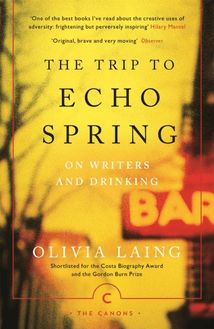-
 Univers
Univers
-
 Ebooks
Ebooks
-
 Livres audio
Livres audio
-
 Presse
Presse
-
 Podcasts
Podcasts
-
 BD
BD
-
 Documents
Documents
-
- Cours
- Révisions
- Ressources pédagogiques
- Sciences de l’éducation
- Manuels scolaires
- Langues
- Travaux de classe
- Annales de BEP
- Etudes supérieures
- Maternelle et primaire
- Fiches de lecture
- Orientation scolaire
- Méthodologie
- Corrigés de devoir
- Annales d’examens et concours
- Annales du bac
- Annales du brevet
- Rapports de stage
La lecture à portée de main
Vous pourrez modifier la taille du texte de cet ouvrage
Découvre YouScribe en t'inscrivant gratuitement
Je m'inscrisDécouvre YouScribe en t'inscrivant gratuitement
Je m'inscrisEn savoir plus
Vous pourrez modifier la taille du texte de cet ouvrage
En savoir plus

Description
Informations
| Publié par | Canongate Books |
| Date de parution | 01 mai 2014 |
| Nombre de lectures | 0 |
| EAN13 | 9781782114376 |
| Langue | English |
| Poids de l'ouvrage | 4 Mo |
Informations légales : prix de location à la page 0,0400€. Cette information est donnée uniquement à titre indicatif conformément à la législation en vigueur.
Extrait
Dame Margaret Drabble was born in Sheffield in 1939 and was educated at Newnham College, Cambridge. She is the author of twenty highly acclaimed novels. She has also written biographies, screenplays and was the editor of the Oxford Companion to English Literature . She was appointed CBE in 1980, and made DBE in the 2008 Honours list. She was also awarded the 2011 Golden PEN Award for a Lifetime’s Distinguished Service to Literature. She is married to the biographer Michael Holroyd.
Also by Margaret Drabble
FICTION
A Summer Bird-Cage The Garrick Year The Millstone Jerusalem the Golden The Waterfall The Needle’s Eye London Consequences (group novel) The Realms of Gold The Ice Age The Middle Ground A Natural Curiosity The Gates of Ivory The Witch of Exmoor The Peppered Moth The Seven Sisters The Red Queen The Sea Lady The Pure Gold Baby The Dark Flood Rises SHORT STORIES A Day in the Life of a Smiling Woman: The Collected Stories NON-FICTION Wordsworth (Literature in Perspective series) Arnold Bennett: A Biography For Queen and Country A Writer’s Britain The Oxford Companion to English Literature (editor) Angus Wilson: A Biography The Pattern in the Carpet
The Canons edition published in Great Britain in 2022 by Canongate Books canongate.co.uk First published in hardback in Great Britain in 1987 by Weidenfeld & Nicolson First published in paperback in Great Britain in 1988 by Penguin Books Ltd This digital edition first published in 2014 by Canongate Books Copyright © Margaret Drabble, 1987 The right of Margaret Drabble to be identified as the author of this work has been asserted by her in accordance with the Copyright, Designs and Patents Act 1988 Every effort has been made to trace copyright holders and obtain their permission for the use of copyright material. The publisher apologies for any errors or omissions and would be grateful if notified of any corrections that should be incorporated in future reprints or editions of this book. Lyrics to “Winter of ’79” © Tom Robinson 1977 British Library Cataloguing-in-Publication Data A catalogue record for this book is available on request from the British Library ISBN 978 1 83885 713 4 eISBN 978 1 78211 437 6
New Year’s Eve, and the end of a decade. A portentous moment, for those who pay attention to portents. Guests were invited for nine. Some are already on their way, travelling towards Harley Street from outlying districts, from Oxford and Tonbridge and Wantage, worried already about the drive home. Others are dining, on the cautious assumption that a nine o’clock party might not provide adequate food. Some are uncertainly eating a sandwich or a slice of toast. In front of mirrors women try on dresses, men select ties. As it is a night of many parties, the more social, the more gregarious, the more invited of the guests are wondering whether to go to Harley Street first, or whether to arrive there later, after sampling other offerings. A few are wondering whether to go at all, whether the festive season has not after all been too tiring, whether a night in slippers in front of the television with a bowl of soup might not be a wiser choice than the doubtful prospect of a crowded room. Most of them will go: the communal celebration draws them, they need to gather together to bid farewell to the 1970s, they need to reinforce their own expectations by witnessing those of others, by observing who is in, who is out, who is up, who is down. They need one another. Liz and Charles Headleand have invited them, and obediently, expectantly, they will go, dragging along their tired flat feet, their aching heads, their over-fed bellies and complaining livers, their exhausted opinions, their weary small talk, their professional and personal deformities, their doubts and enmities, their blurring vision and thickening ankles, in the hope of a miracle, in the hope of a midnight transformation, in the hope of a new self, a new life, a new, redeemed decade.
Alix Bowen has always known that she will have to go to the party, because she is one of Liz Headleand’s two closest friends, and she has pledged her support, for what it is worth. She has promised, even, to go early, but cannot persuade her husband Brian to go early with her. A couple of hours of any party is enough for me, Brian has said, and we’ll have to stay until midnight, so I’m certainly not turning up before ten. All right, I’ll go alone, said Alix. She thought Brian was quite reasonable not to want to go early. She herself is not a reasonable person, she suspects, a suspicion confirmed that evening in the bathroom as she tries, out of respect to Liz’s party, to apply a little of a substance called Fluid Foundation to the winter-dry skin of her face. This is what people do before parties: she has seen them doing it on television: indeed, she used to do it herself when she was young, when she had no need of such substances, before she reverted so inexorably to her ancestral type.
The Fluid Foundation comes in a little opaque beige plastic container, and is labelled, in gold lettering, Teint Naturel. She bought it a year ago and recalls that it cost a great deal of money. She uses it infrequently. Now she cautiously squeezes the container. Nothing happens. Is it dry? Is it empty? How can one tell? She squeezes again, and this time a great glob of Teint Naturel extrudes itself from the narrow aperture on to her middle finger. She gazes at it in mild dislike. It glistens, pinky-brown, faintly obscene, on her finger. Common sense, reason, tell her to wash this away down the wash bowl, but thrift forbids. Thrift is one of Alix’s familiars. Thrift does not often leave her side. Thrift has nearly killed her on several occasions, through the agency of old sausages, slow-punctured tyres, rusty blades. Thrift now recommends that she apply the rest of this blob to her complexion rather than wastefully flush it away. Thrift disguised as Reason speciously suggests than an excess of Fluid Foundation on one’s face, unlike a poisoned sausage, will cause no harm. Thrift apologizes, whingeing, for the poisoned sausage, reminding Alix that she ate it twenty years ago, when she had no money and needed the sausage.
Alix hesitates, then splats the rest of the glob on to her face and begins to work it in, angrily. She blames the manufacturers for the poor design of the container: probably deliberate, she reflects, probably calculated to make people splurge out far more than they need of the stuff. She is slightly cheered by the thought of how little reward they would reap from their dishonesty if all consumers were as moderate as she. (She wonders, in parenthesis, how much of the nation’s income is spent on cosmetics, and whether the statistics will be provided in the New Year issue of Social Trends .) She is more cheered, although at first puzzled, by the fact that as she works the excess of Teint Naturel on her skin, her appearance begins to improve. Instead of turning brick-red or prawn-cocktail-pink, as she had feared, she is turning a pleasant beige, a natural beige, she is beginning to look the same colour that people look in television advertisements. A pleasant, mat, smooth beige. It is remarkable. So this, perhaps, is what the manufacturers had always intended? She apologizes to Thrift for having been angry, then remembers that it was Thrift that had dictated her previous parsimonious, sparing applications, and is confused.
She gazes at herself in wonder. Vanished are her healthy pink cheeks, her slightly red winter nose, her mole, her little freckles and blemishes: she is smooth, new made. She dabs a little powder on top, and stands back to admire the effect. It is pleasing, she decides. She wonders what it will look like by midnight. Will she be transformed into an uneven, red-faced, patchy, blotchy clown? An ugly sister? Alix has always felt rather sorry for the poor competitive disappointed Ugly Sisters. Indeed, she feels sorry for almost everybody. It is one of her weaknesses. But she does not feel sorry for her friend Liz Headleand. As she struggles into her blue dress, she wonders idly if she is so fond of Liz because she does not have to feel sorry for her, or if she does not have to feel sorry for her because she is so fond of her? Or are the two considerations quite distinct? She feels she is on the verge of some interesting illumination here, but has to abandon it in order to search for Brian, to ask him to fasten the back of her dress: if she does not leave soon, she will be late for her early arrival, and moreover she has promised to meet Esther Breuer at eight thirty precisely on the corner of Harley Street and Weymouth Street. They plan to effect a double entry.
Esther Breuer has decided to walk to the intersection of Harley Street and Weymouth Street. She often walks alone at night. She walks from her flat at the wrong end of Ladbroke Grove, along the Harrow Road, under various stretches of motorway, past the Metropole Hotel where she calls in to buy herself a drink in the Cosmo-Cocktail Bar (she is perversely fond of the Metropole Hotel), and then through various increasingly handsome although gloomy back streets, until she arrives at the arranged corner. As she approaches it, she cannot at first see Alix, but she believes that Alix will be there, and indeed momently she is: they converge, Esther from the west, Alix from the south, and moderate their pace (Esther accelerating slightly, Alix marginally slowing down) so that they meet upon the very corner itself. They are both delighted by this small achievement of coordination. They congratulate themselves upon it, as they walk north towards Liz’s house in Harley Street, towards the invisible green of Regent’s Park.
Liz Headleand sits at her dressing-table in her dressing-room. Her gold watch and her digital clock agree that it is nineteen minutes past eight. At half past eight she will go downstairs to see what is happening in the kitchen, to see if
-
 Univers
Univers
-
 Ebooks
Ebooks
-
 Livres audio
Livres audio
-
 Presse
Presse
-
 Podcasts
Podcasts
-
 BD
BD
-
 Documents
Documents
-
Jeunesse
-
Littérature
-
Ressources professionnelles
-
Santé et bien-être
-
Savoirs
-
Education
-
Loisirs et hobbies
-
Art, musique et cinéma
-
Actualité et débat de société
-
Jeunesse
-
Littérature
-
Ressources professionnelles
-
Santé et bien-être
-
Savoirs
-
Education
-
Loisirs et hobbies
-
Art, musique et cinéma
-
Actualité et débat de société
-
Actualités
-
Lifestyle
-
Presse jeunesse
-
Presse professionnelle
-
Pratique
-
Presse sportive
-
Presse internationale
-
Culture & Médias
-
Action et Aventures
-
Science-fiction et Fantasy
-
Société
-
Jeunesse
-
Littérature
-
Ressources professionnelles
-
Santé et bien-être
-
Savoirs
-
Education
-
Loisirs et hobbies
-
Art, musique et cinéma
-
Actualité et débat de société
- Cours
- Révisions
- Ressources pédagogiques
- Sciences de l’éducation
- Manuels scolaires
- Langues
- Travaux de classe
- Annales de BEP
- Etudes supérieures
- Maternelle et primaire
- Fiches de lecture
- Orientation scolaire
- Méthodologie
- Corrigés de devoir
- Annales d’examens et concours
- Annales du bac
- Annales du brevet
- Rapports de stage




















